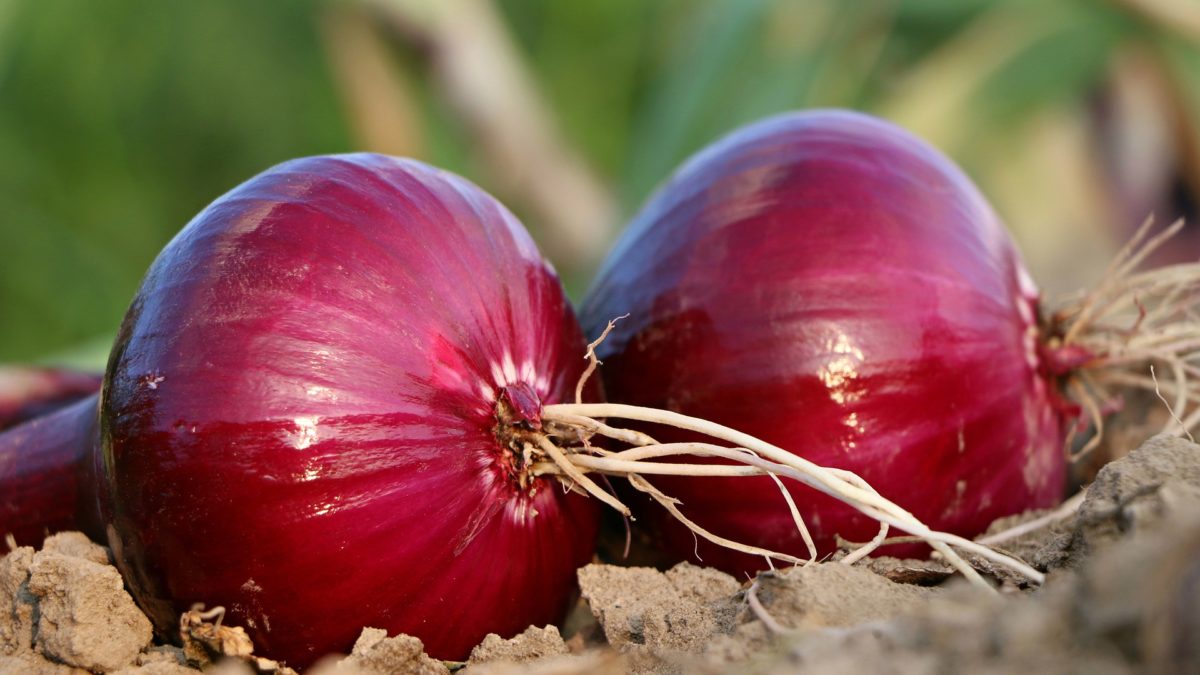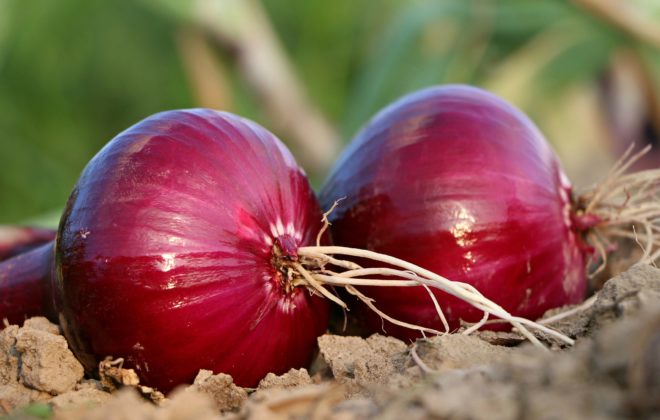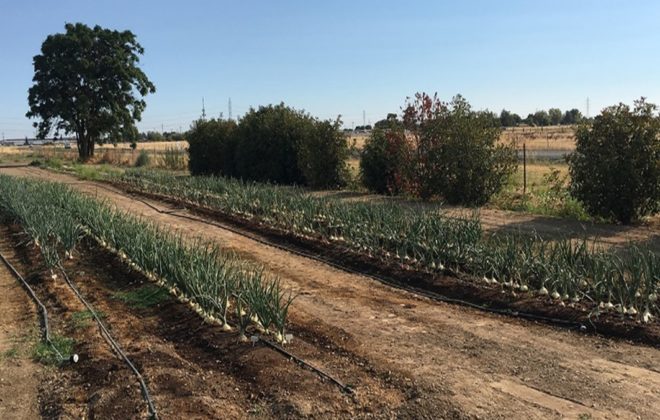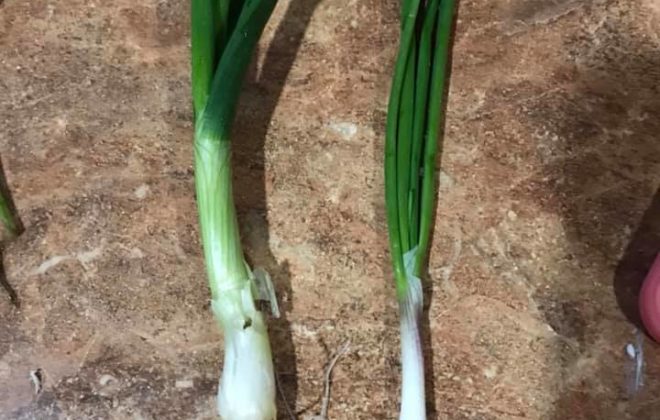February 2022 Onion Patch Newsletter
Hello Gardeners,
We wanted to share this beautiful picture of red onions to start the month of Valentine’s Day. This month we have an article about protecting your onion plants from cold weather. Speaking of cold weather, we have a fantastic recipe that will keep you warm, Potato Leek Soup with Dill.
Expecting Cold Weather
Generally, onions can withstand light to heavy frosts, but hard freezes can damage onions. Freeze injury may be readily detectable if the bulbs are translucent or have water-soaked outer scales. One or two days after the freeze event, onions should be cut vertically to see if translucent scales are present. In some cases, freeze damage may not be readily detectable for several days. The onion plant will survive off the bulb for up to ten days. After a week, the plant can be cut vertically to see if there are any new, green shoots starting to appear from inside the bulb. If there is new growth, then the plant will live. In these cases, the growing point may have been affected, and subsequent growth will be abnormal, increasing the incidence of double centers. The growing point is damaged to the extent that two growing points develop.
Applying a pre-plant application of a balanced fertilizer (10-20-10) will help an onion survive cold temperatures. Phosphorus (P) is essential for rapid root development. It is found in adequate levels in most soils but is not readily available at low soil temperatures. Potassium (K) is an essential factor in plant’s water retention, cell-wall formation, and energy reactions in the plant. A healthy, well-fertilized plant will most likely take temperatures down to 20° F without any damage. Watering the onions before a hard freeze will help insulate the bulbs. Cultivating fields results in a layer of moist soil at the surface that acts as insulation. This holds the day’s heat in the soil around the bulb and root. A larger plant will have a greater likelihood of surviving since it has more carbohydrates in the bulb to keep the plant from dying.
We say that onion plants can survive temperatures as low as 20 degrees but what is more important is how long the temperatures are below freezing. The onion plant is a carbohydrate factory. The effect of freezing temperatures varies considerably, considering how many carbohydrates are available to the plant when it starts to recover. If the plant has to use up all its carbohydrates stored in the bulb before it can regenerate more carbohydrates, it will die. That is why it usually takes about a week before anyone can assess the damage from a severe freeze. The best thing you can do is make sure the plant has everything it needs to grow or generate more carbohydrates, including supplying the plant with water and chemicals to restore its health. If you see some new leaves emerging, your plant is on its way to recovery. This may take a couple of weeks. After a week, if you pull the plant out and it becomes mush when you squeeze the bulb, you are in trouble. A larger plant will survive a freeze better than a smaller one, but a larger plant will more likely go to seed than a smaller plant if a severe freeze occurs.
EXPECTING A FREEZE: Water well!! Water acts as an insulator—cover plants with straw or mulch.
Onion Plant Timeline
Below, pictures were taken of how plants fair during shipping. Make sure when receiving plants to remove band and layout in a cool and dry environment. The plants protect themselves by going dormant and will stay that way for three weeks. The great thing about onions is that they are very tough plants; as long as the bulbs are not mushy, they will flourish when planted. If you are concerned about their dry appearance, do not be as this is how they look when dormant. Once planted they will wake up and shoot new roots and tops, enabling them to utilize the nutrients and water you will give them after planting. If plants arrive damp or mushy, do not plant. Spread them out to dry, then trim tops after drying. We guarantee your onion plants will transplant successfully. If you do not see new growth within 30 days, email or call for a replacement, credit or refund.
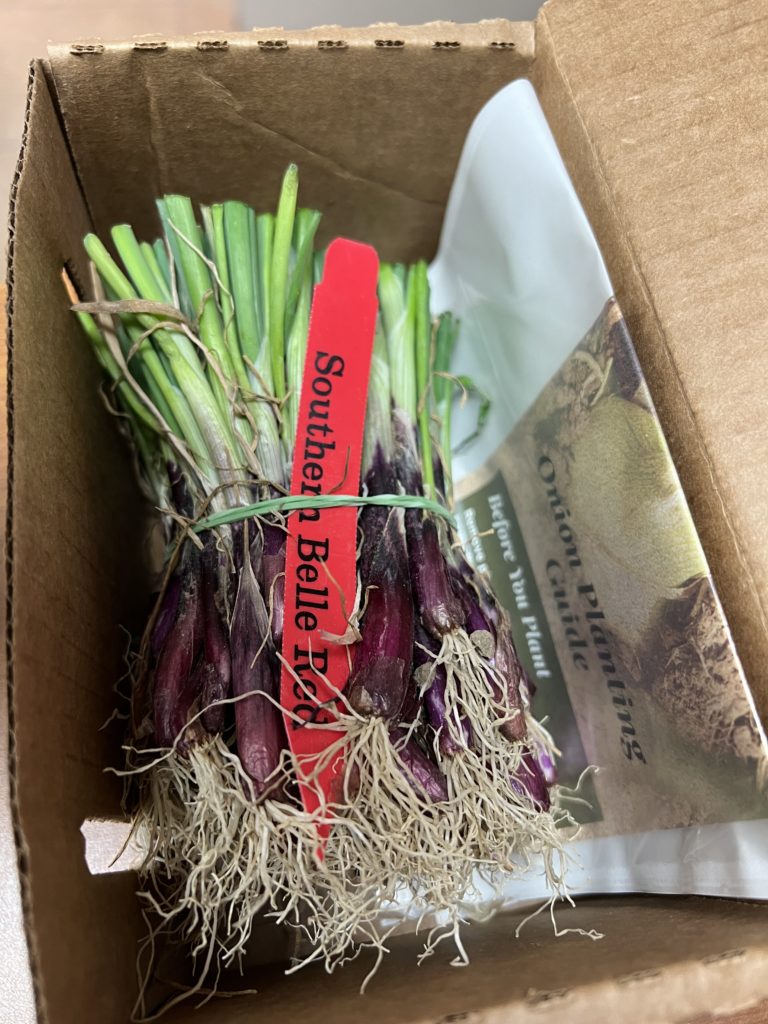
Plants leaving Dixondale Farms 
Plants after 3 days in the Mail 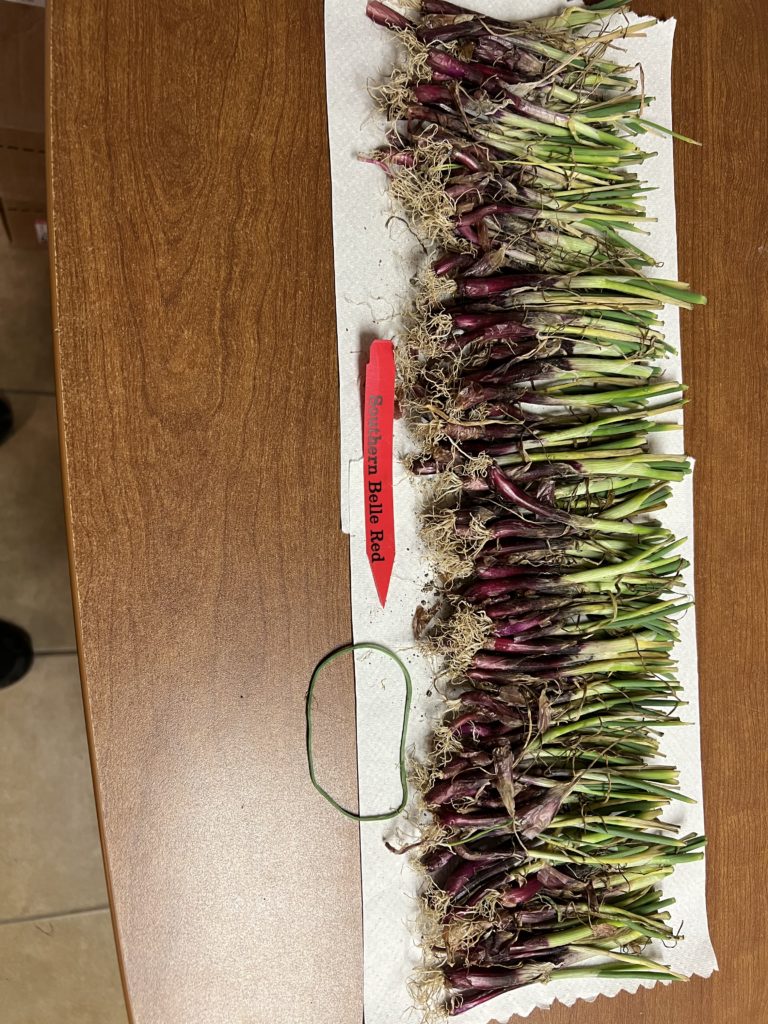
Example of laying out plants when receiving 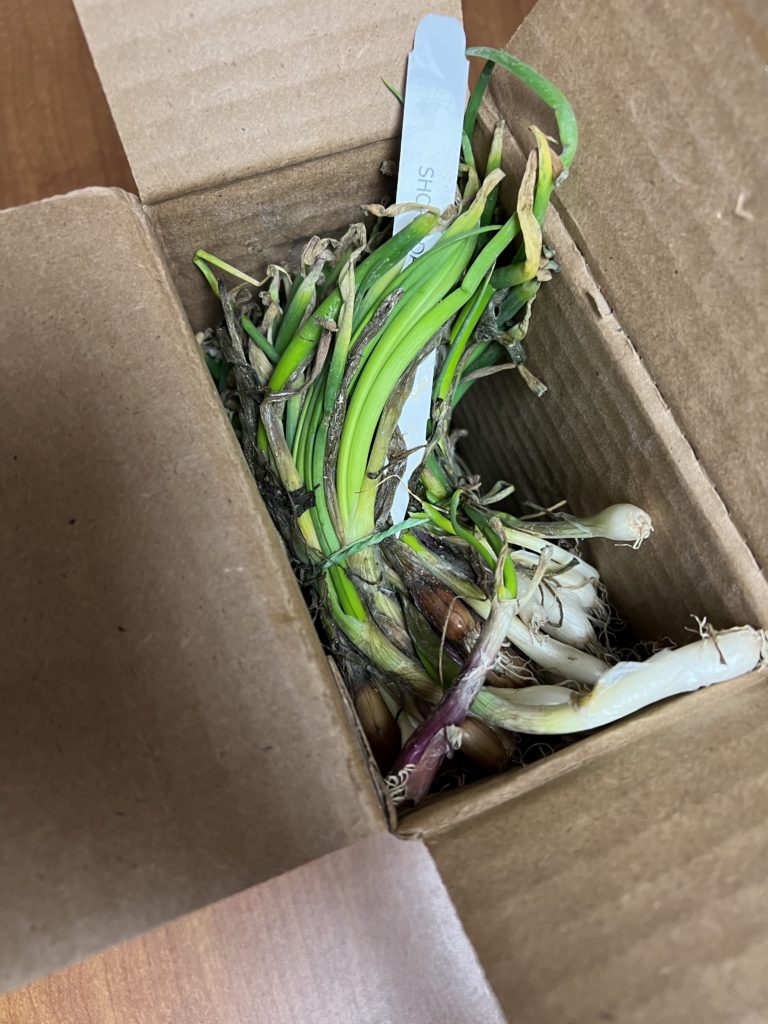
Plants after 10 days in the Mail 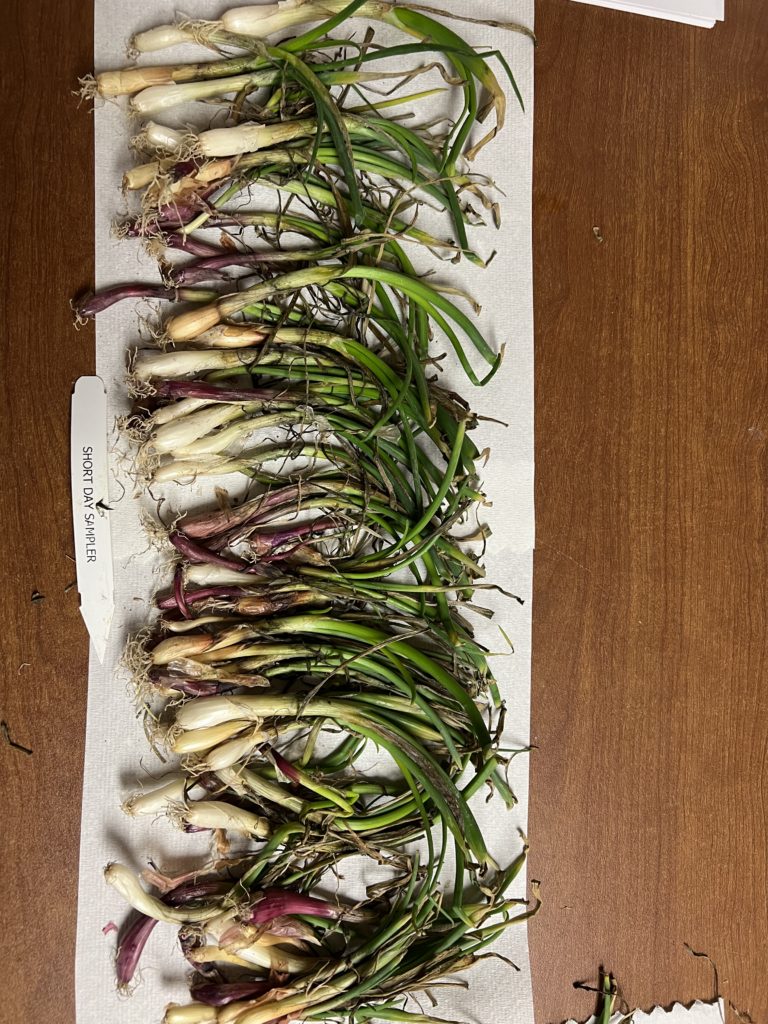
Laying out plants 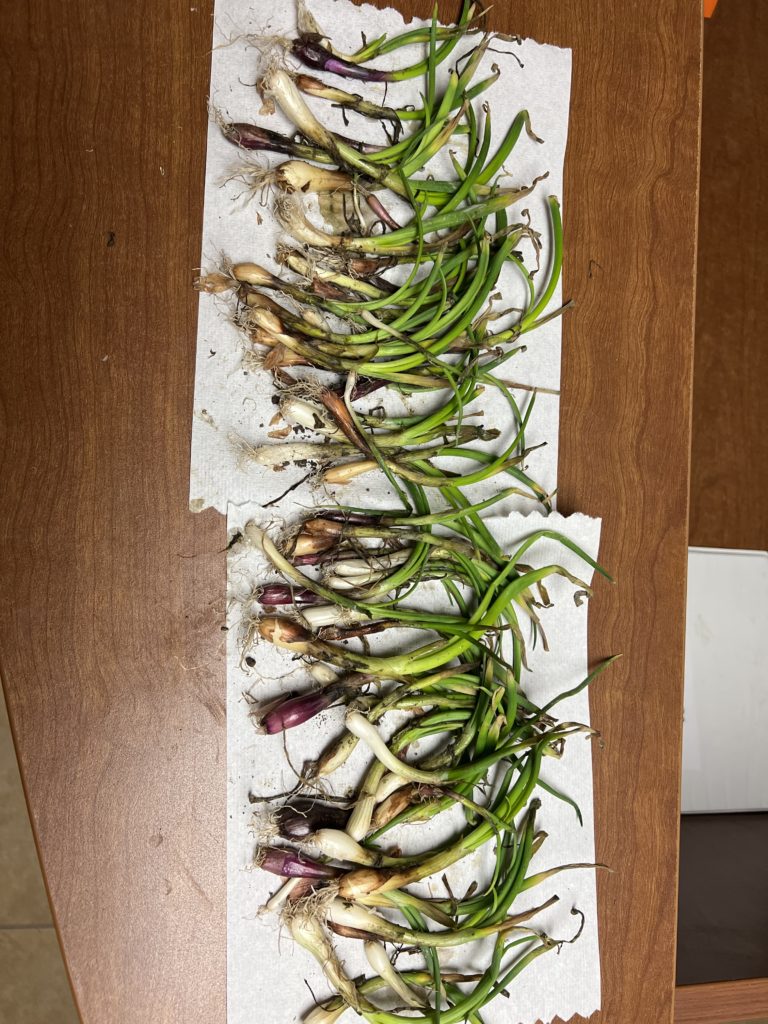
Plants after 3 days
From Our Friends
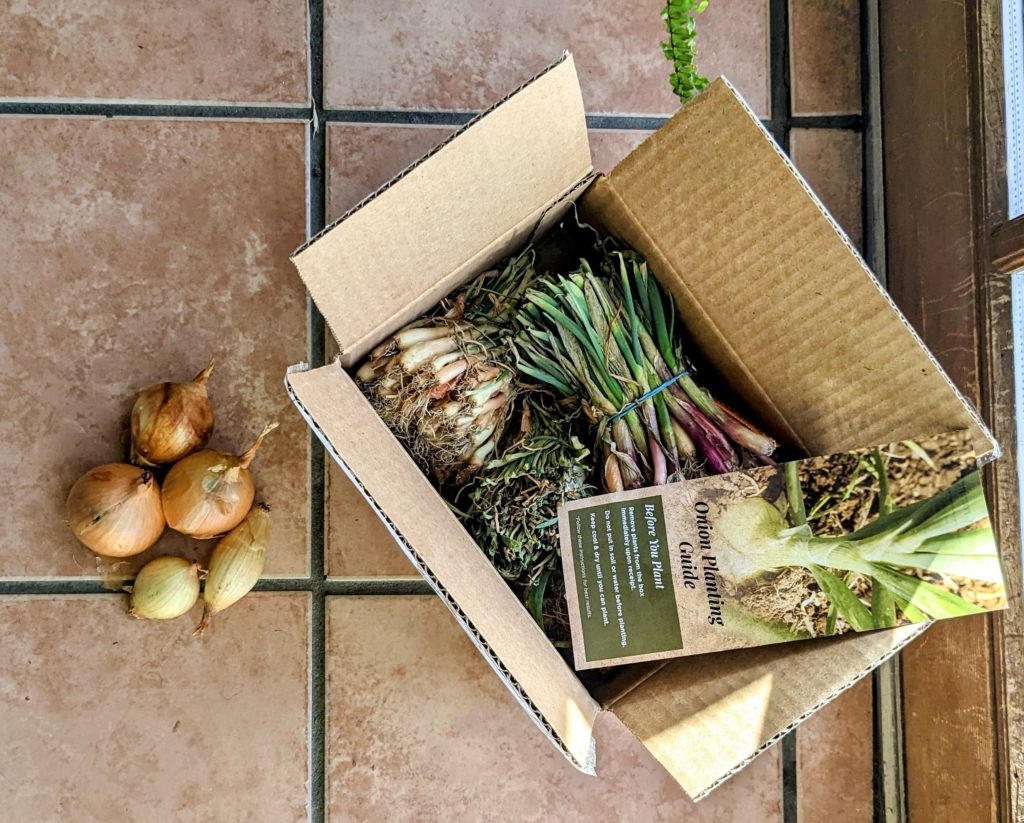
Thanks!”
Brant Palley, NM
Around the Farm
The plants are looking fantastic. The weather for January has been outstanding for the growth of onion plants here in south Texas. Bruce “Onionman” Frasier made some Potato Leek Soup with Dill from this month’s recipe for the Dixondale Family. I can say first hand it was amazing; it was so good it was gone before we could get a picture of it. By the way, Bruce couldn’t resist adding an onion.
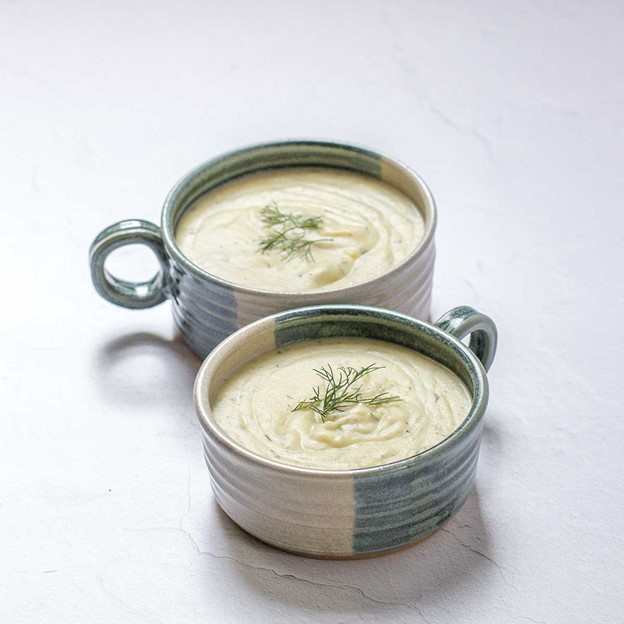
Potato Leek Soup with Dill


